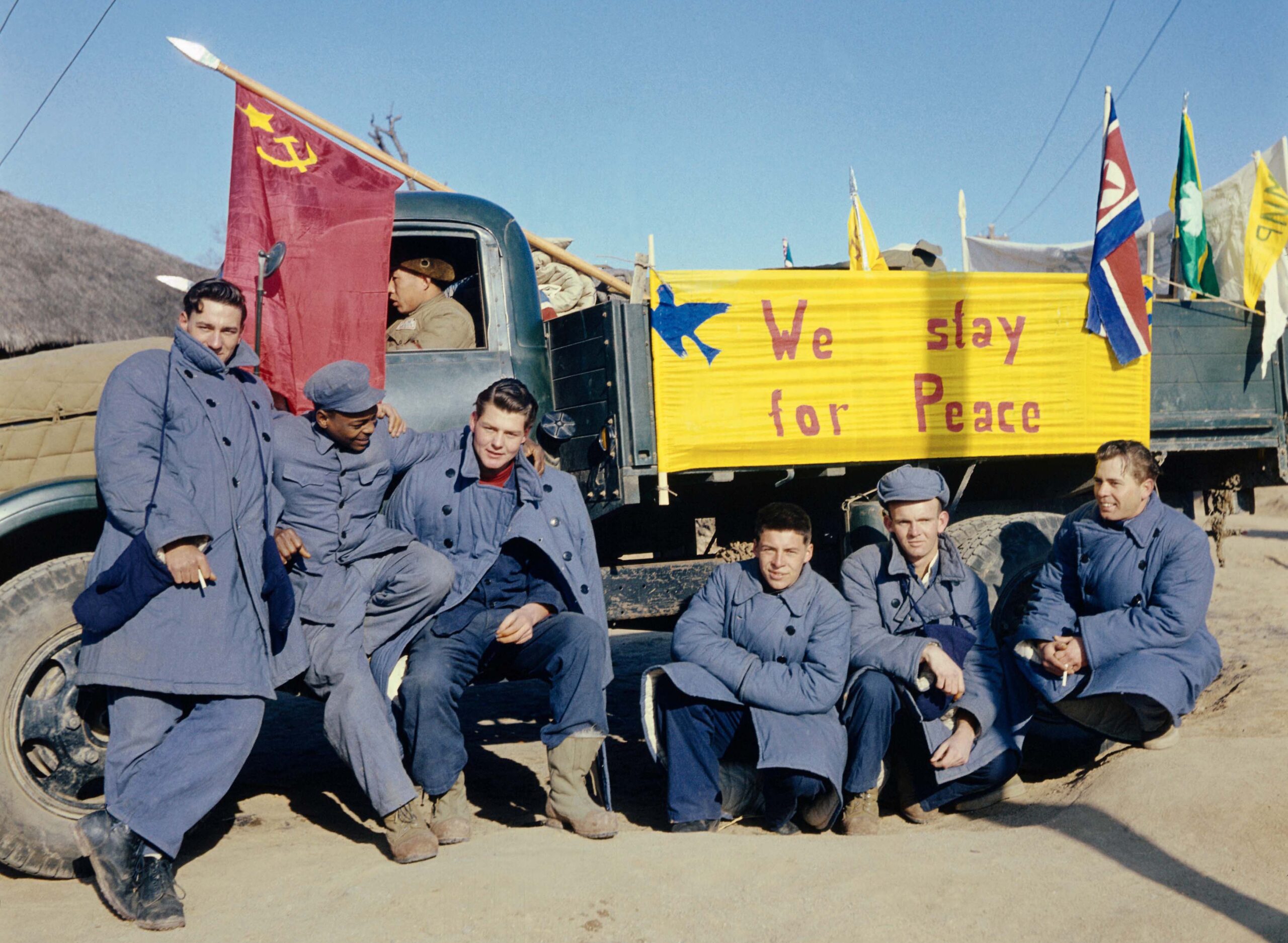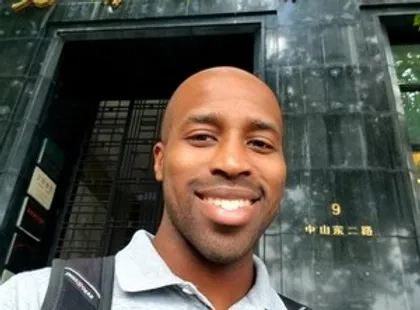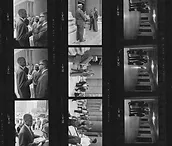Photo by Bettmann Collection/Getty Images
In the United States, the Korean War (1950-1953) is often referred to as the “forgotten” war—sandwiched between the total victory of World War II and a generation-defining defeat in the jungles of Vietnam.
The Korean War was, however, the earliest major conflict of the Cold War and the first after President Harry Truman desegregated the U.S. military by signing Executive Order 9981. As a result, Korea became the first major battlefield where African American activists who framed their struggle internationally squared off against the politics of the Cold War.
After three years of fierce battles, the fighting on the Korean Peninsula ended essentially where it had begun, roughly along the 38th parallel. The bloody stalemate cost millions of lives, but still, hundreds of thousands of prisoners of war (POWs) remained to be exchanged. Negotiations to end the war began in 1951 and hinged on the question of repatriation.
North Korea and China wanted compulsory repatriation, but the United States advocated for voluntary repatriation, hoping to see large numbers of captured North Korean and Chinese POWs decide to stay in the South. In 1953, North Korea and China relented, and Operation Big Switch began the process of returning POWs.
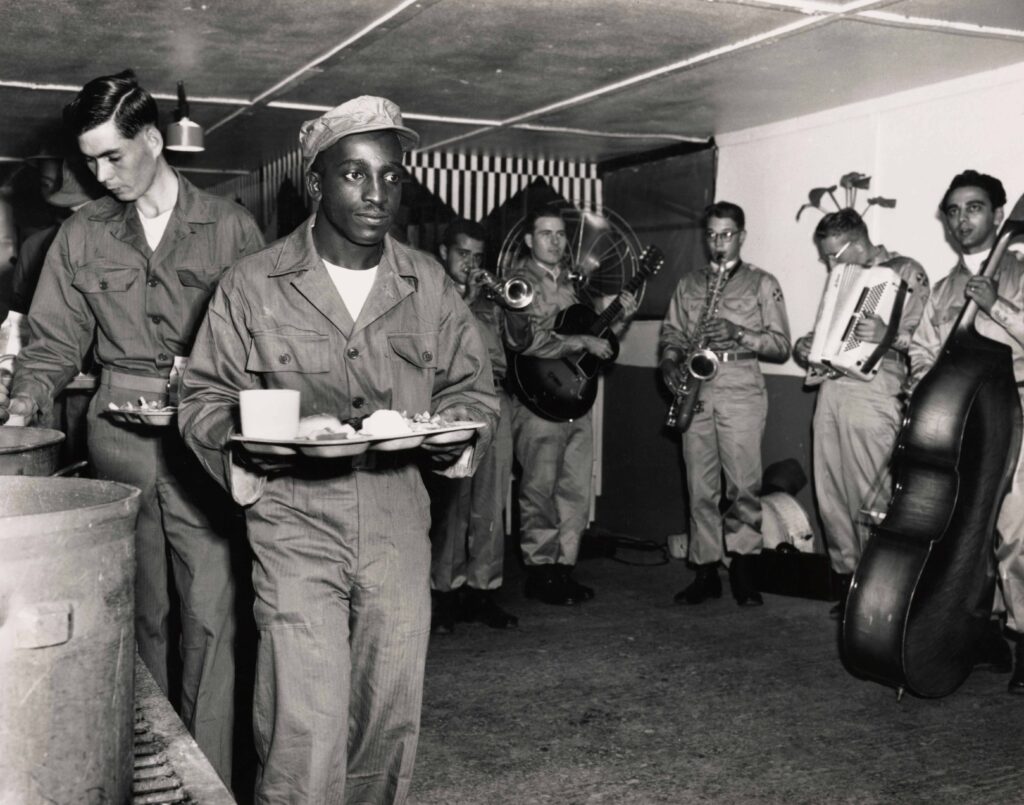
Photo by Bettmann Collection/GettyImages
Private James Gatlin, seen here carrying a tray of food as he awaits repatriation, was one of the first POWs exchanged as a part of Operation Big Switch in August of 1953.
Thousands of North Korean and Chinese POWs refused repatriation and chose to build new lives outside of their home countries. Pictured below, Chinese prisoners of war who decided against returning to Mao Zedong’s Revolutionary Socialist China board ships bound for Chiang Kaishek’s vehemently anti-communist Republic of China on the island of Taiwan. Undoubtedly, the United States saw this as a propaganda coup.
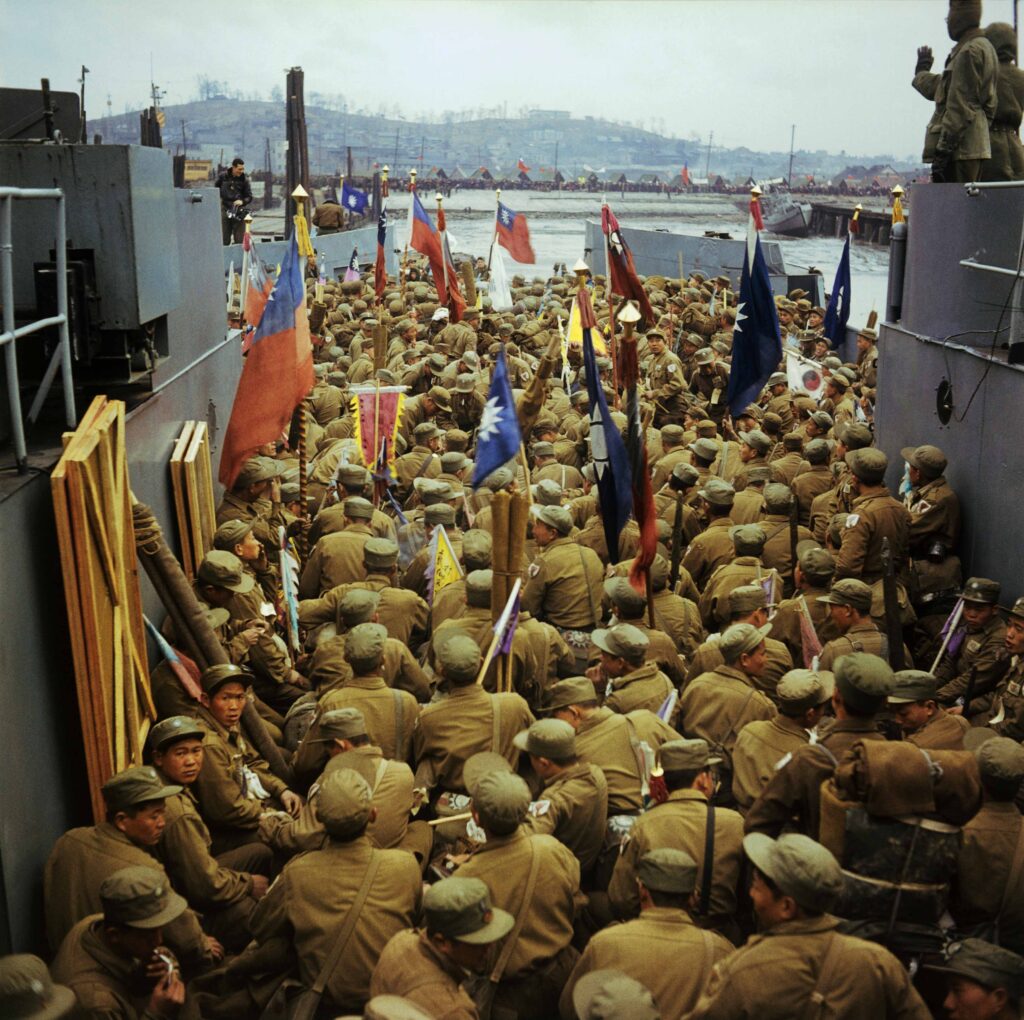
Photo by Bettmann Collection/Getty Images
However, the U.S. government had not anticipated that some Americans would choose to remain behind the “bamboo curtain.”
Over three hundred UN soldiers refused repatriation, including 23 Americans and three African Americans. To explain to the bewildered American public why the POWs chose to remain in North Korea and China, American journalist Edward Hunter introduced his audiences to the Chinese term “brainwashing.”
The Chinese Communist Party had used the term to refer to political reeducation long before the Korean War, but Hunter’s description gave it far more sinister tone. Many in the United States came to believe that only through tricks of the mind would an American soldier choose communism over capitalism. The true story was more complicated.
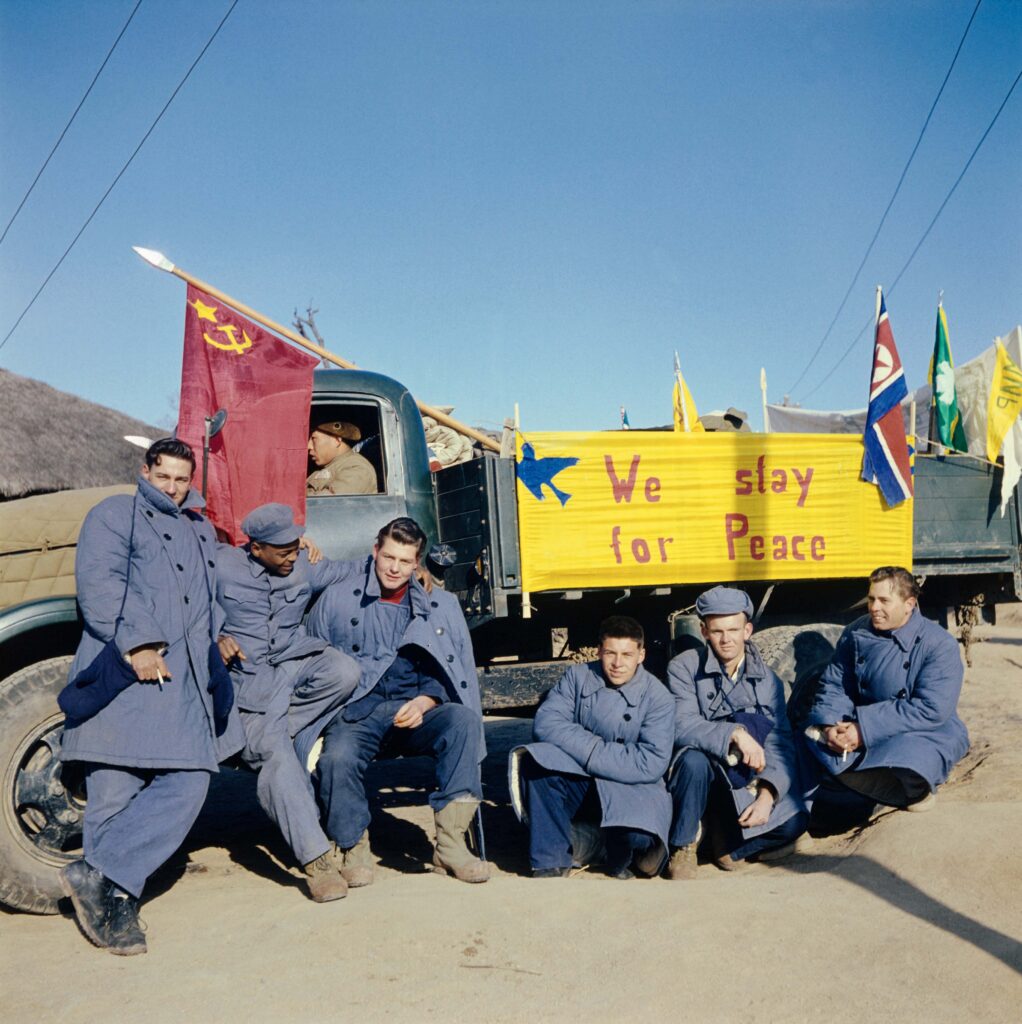
Pictured here are some of those who stayed. The men posed in front of a truck emblazoned with the words “We stay for peace.” While world peace was a motivating factor, the photographed here chose to stay for varying reasons.
Clarence Cecil Adams, the African American man second from the left, later explained that he and the other African Americans chose to stay because “we wanted to escape the racism we had suffered in our own country and in the military as well. We wanted an education, a decent job, and to be treated with respect.”
Race relations in the United States became the country’s Achilles’ heel in its Cold War struggle with the Soviet Union and the People’s Republic of China. FBI records on Adams reveal the bureau’s deep concern as to how African Americans might respond to overtures from communist states. Indeed, Adams is alleged to have noted while in captivity that “negroes were oppressed like the Chinese people” and that he “preferred the communist way of life.”
The pressures of the U.S. battle with the communist bloc and domestic protest movements compelled the U.S. government to pass flurries of civil rights legislation in the decades following the Korean War.
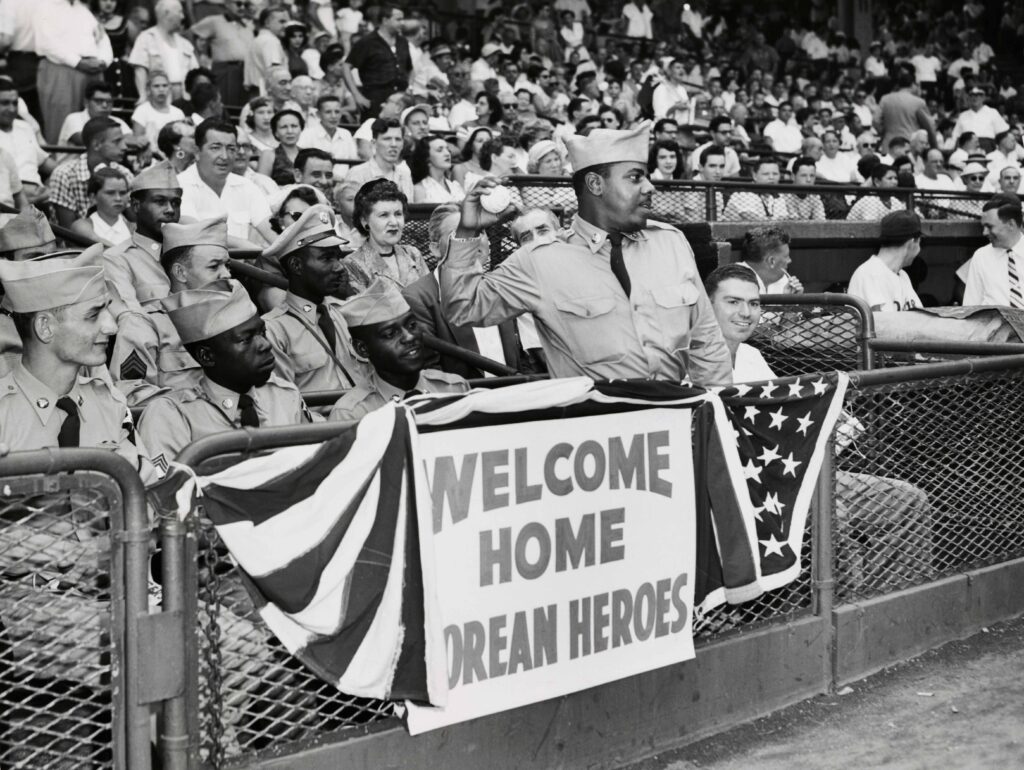
Photo by Bettmann CollectionGetty Images
The image above shows Private First-Class Rafael Mora-Ros throwing the first ball to open a game between the New York Dodgers and the Cincinnati Reds in late August 1953. The photo, which highlights Black and white soldiers seated together after returning home, presents the image of harmonious race relations the U.S. government hoped the world would see.
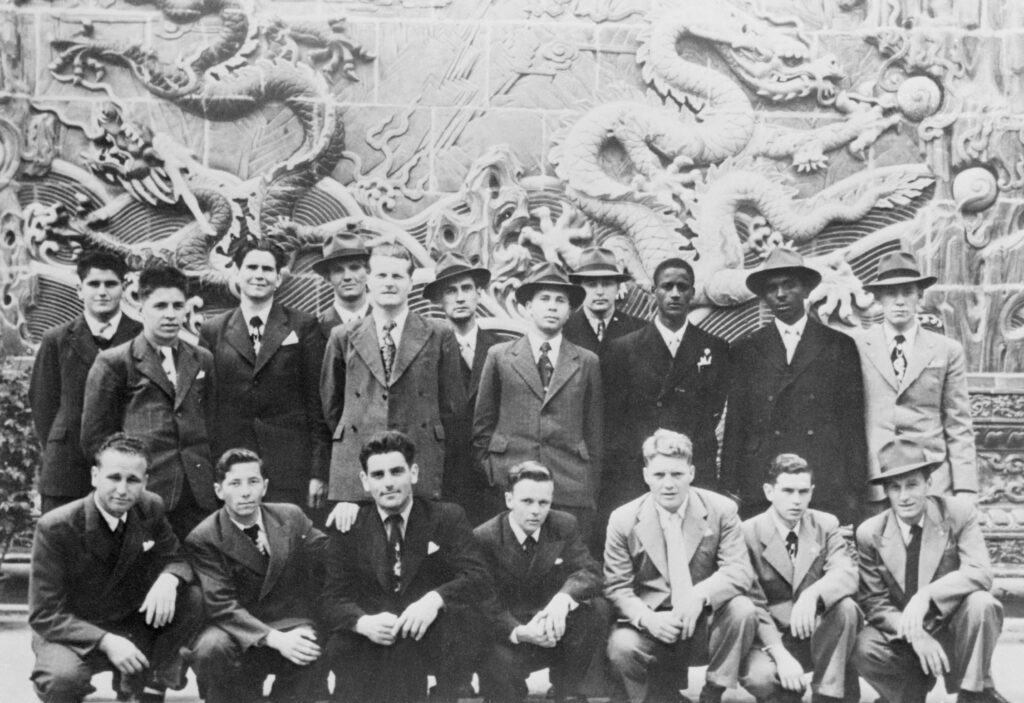
Photo by Bettmann Collection/Getty Images
However, the final photo shows UN soldiers, including two African Americans, as they toured Beijing in 1954. Released almost a year after the photo at the Dodgers’ Ebbets Field, it foreshadowed how Black Americans increasingly challenged race relations at home and abroad on the international stage.
The Korean War marked the first time since the onset of the Cold War that African Americans peered behind the so-called Iron Curtain and chose to stay. It would not be the last.

Learn More:
Clarence Adams, An American Dream: The Life of an African American Soldier and POW Who Spent Twelve Years in Communist China (Amherst: University of Massachusetts Press, 2007).
Gao Yunxiang, Arise, Africa! Roar, China!: Black and Chinese Citizens of the World in the Twentieth Century (Chapel Hill: University of North Carolina Press, 2021).
Curtis Morrow, What’s a Commie Ever Done to Black People?: A Korea War Memoir of Fighting in the U.S. Army Last all Negro Unit (Jefferson: McFarland & Company, 1997). [I have only skimmed this one]
Christine Knauer, Let Us Fight as Free Men: Black Soldiers and Civil Rights (Philadelphia: University of Pennsylvania Press, 2014).


